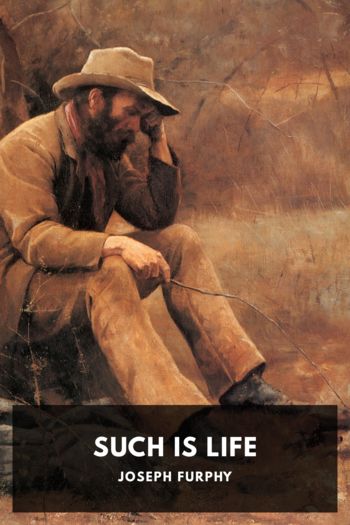Diary by Chuck Palahniuk (classic fiction .txt) 📗

- Author: Chuck Palahniuk
Book online «Diary by Chuck Palahniuk (classic fiction .txt) 📗». Author Chuck Palahniuk
Her husband gave her.
You gave her.
All afternoon in the sealed laundry room, the words written around the walls said: “. . . will not steal our world to replace the world you've ruined . . .”
And Angel said, “The handwriting is different here. It's changing.” He snapped another picture and cranked to the next frame of film, saying, “Do you know what order your husband worked on these houses?”
Misty told Angel how a new owner should move in only after the full moon. According to carpenter tradition, the first to enter a new house should always be the family's favorite pet. Then should enter the family's cornmeal, the salt, the broom, the Bible, and the crucifix. Only then can the family and their furniture move in. According to superstition.
And Angel, snapping pictures, said, “What? The cornmeal's supposed to walk in by itself?”
Beverly Hills, the Upper East Side, Palm Beach, these days, Angel Delaporte says, even the best part of any city is just a deluxe luxury suite in hell. Outside your front gates, you still have to share the same gridlocked streets. You and the homeless drug addicts, you still breathe the same stinking air and hear the same police helicopters chasing criminals all night. The stars and moon erased by the lights from a million used car lots. Everyone crowds the same sidewalks, scattered with garbage, and sees the same sunrise bleary and red behind smog.
Angel says that rich people don't like to tolerate much. Money gives you permission to just walk away from everything that isn't pretty and perfect. You can't put up with anything less than lovely. You spend your life running, avoiding, escaping.
That quest for something pretty. A cheat. A cliché. Flowers and Christmas lights, it's what we're programmed to love. Someone young and lovely. The women on Spanish television with big boobs and a tiny waist like they've been twisted three times. The trophy wives eating lunch at the Waytansea Hotel.
The words on the walls say: “. . . you people with your ex-wives and stepchildren, your blended families and failed marriages, you've ruined your world and now you want to ruin mine . . .”
The trouble is, Angel says, we're running out of places to hide. It's why Will Rogers used to tell people to buy land: Nobody's making it anymore.
This is why every rich person has discovered Waytansea Island this summer.
It used to be Sun Valley, Idaho. Then it was Sedona, Arizona. Aspen, Colorado. Key West, Florida. Lahaina, Maui. All of them crowded with tourists and the natives left waiting tables. Now it's Waytansea Island, the perfect escape. For everyone except the people already living there.
The words say: “. . . you with your fast cars stuck in traffic, your rich food that makes you fat, your houses so big you always feel lonely . . .”
And Angel says, “See here, how his writing is crowded. The letters are squeezed together.” He snaps a picture, cranks the film, and says, “Peter's very frightened of something.”
Mr. Angel Delaporte, he's flirting, putting his hand over hers. He gives her the flask until it's empty. All this is just fine so long as he doesn't sue her like all your other clients from the mainland. All the summer people who lost bedrooms and linen closets. Everybody whose toothbrush you stuck up your butt. Half the reason why Misty gifted the house so fast to the Catholics was so nobody could put a lien against it.
Angel Delaporte says our natural instinct is to hide. As a species, we claim ground and defend it. Maybe we migrate, to follow the weather or some animal, but we know it takes land to live, and our instinct is to stake our claim.
It's why birds sing, to mark their territory. It's why dogs pee.
Sedona, Key West, Sun Valley, the paradox of a half million people going to the same place to be alone.
Misty still tracing the black paint with her index finger, she says, “What did you mean when you talked about Stendhal syndrome?”
And still snapping pictures, Angel says, “It's named after the French writer Stendhal.”
The words she's tracing, they say, “. . . Misty Wilmot will send you all to hell . . .”
Your words. You fucker.
Stanislavski was right, you can find fresh pain every time you discover what you pretty much already know.
Stendhal syndrome, Angel says, is a medical term. It's when a painting, or any work of art, is so beautiful it overwhelms the viewer. It's a form of shock. When Stendhal toured the Church of Santa Croce in Florence in 1817, he reported almost fainting from joy. People feel rapid heart palpitations. They get dizzy. Looking at great art makes you forget your own name, forget even where you're at. It can bring on depression and physical exhaustion. Amnesia. Panic. Heart attack. Collapse.
Just for the record, Misty thinks Angel Delaporte is a little full of shit.
“If you read contemporary accounts,” he says, “Maura Kincaid's work supposedly brought about a kind of mass hysteria.”
“And now?” Misty says.
And Angel shrugs, “Search me.” He says, “From what I've seen, it's okay, just some very pretty landscapes.”
Looking at her finger, he says, “Do you feel anything?” He snaps another picture and says, “Funny how tastes change.”
“. . . we're poor,” Peter's words say, “but we have what every rich person craves . . . peace, beauty, quiet . . .”
Your words.
Your life after death.
Going home tonight, it's Will Tupper who gives Misty the beer in the paper bag. He lets her drink on deck despite the rules. He asks if she's working on any paintings lately. Any landscapes, maybe?
On the ferryboat, the man with the dog, he says the dog's trained to find dead people. When somebody dies, they give off this huge stink of what the man calls epinephrine. He said it's the smell of fear.
The





Comments (0)